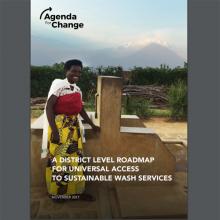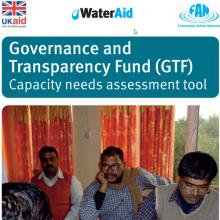Crosscutting Areas

Understanding and addressing equality, non-discrimination and inclusion in water, sanitation and hygiene work
Year of publication:
2018
This toolkit gives practical guidance and support on reducing inequalities in WASH programme and advocacy work. It is primarily geared toward WaterAid staff and partners, but many of the principles and activities are equally relevant to other those working in other sectors of development.



